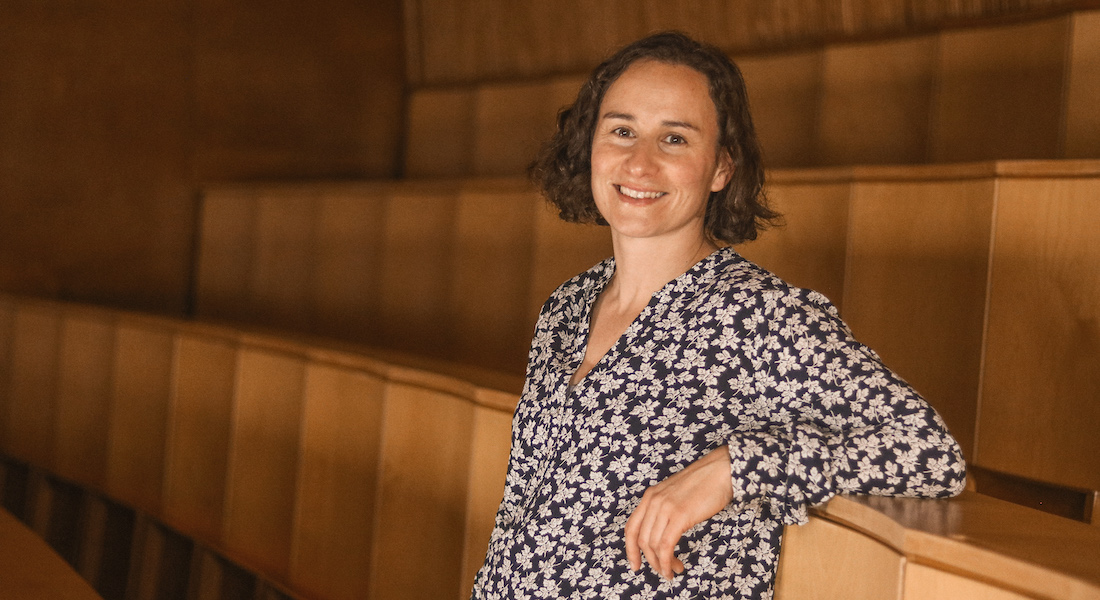Danish researchers develop algorithms for mental health
With DKK 20 million in funding from the Lundbeck Foundation, a group of researchers will test how effective algorithms based on artificial intelligence are at addressing real-world challenges in managing citizens with mental health issues.

Associate Professor Melanie Ganz-Benjaminsen from the Department of Computer Science at the University of Copenhagen has just received a grant of DKK 20 million from the Lundbeck Foundation's Collaborative Projects program. The grant will support the development of the TRUSTMIND research project, which investigates the use of artificial intelligence (AI) in mental health – with a particular focus on depression.
The TRUSTMIND project builds on research from the Neurobiology Research Unit at Rigshospitalet, with which Melanie Ganz-Benjaminsen is also affiliated. Rigshospitalet will therefore provide the necessary data for the project.
European healthcare systems are under pressure, especially in the field of psychiatry. Long waiting times for diagnosis and treatment are a challenge, and in Denmark, patients wait an average of 92 weeks for a specialist consultation. With the TRUSTMIND project, the researchers aim to investigate how AI can be used to improve the prioritization of healthcare resources – but with a critical eye on the technology's limitations, explains Melanie Ganz-Benjaminsen.
- We are not just developing AI algorithms to solve the problems, but to understand their weaknesses and challenges in a realistic context, explains Melanie Ganz-Benjaminsen.
Artificially intelligent decisions?
The purpose of the project is not to create ready-to-use clinical tools, but rather to simulate a development process for AI algorithms in mental health. With access to extensive datasets from Danish registers and existing research projects, the project will identify the errors and limitations that can arise when complex algorithms are applied to real-world data.
According to Melanie Ganz-Benjaminsen, the goal is to create a test environment that can reveal the challenges that can be expected if artificial intelligence is used for decision-making in the healthcare sector.
- We draw on experiences from other sectors that already use algorithms for decision-making, such as recruitment and the legal system. Our project is particularly relevant in psychiatry, where predictive algorithms are already being developed in Denmark to reduce readmissions, says Melanie Ganz-Benjaminsen.
Collaboration across disciplines
TRUSTMIND brings together researchers from neuroscience, computer science, and medicine, supplemented by experts in ethics and law.
Associate Professor Melanie Ganz-Benjaminsen from the Department of Computer Science at the University of Copenhagen and the Neurobiology Research Unit at Rigshospitalet will collaborate with Professor Aasa Feragen from DTU Compute at the Technical University of Denmark (DTU) and Professor Merete Osler from the Center for Clinical Research and Prevention at Bispebjerg and Frederiksberg Hospitals (CCRP-RH) and the Department of Public Health at the University of Copenhagen.
The other two collaborators are Associate Professor Sune Holm from the Department of Food and Resource Economics at the University of Copenhagen (IFRO KU) in the area of ethics, and Associate Professor Katharina Ó Cathaoir from the Faculty of Law at the University of Copenhagen (LAW KU) in the area of law.
Contact
Melanie Ganz-Benjaminsen
Associate Professor
Department of Computer Science, University of Copenhagen
ganz@di.ku.dk
